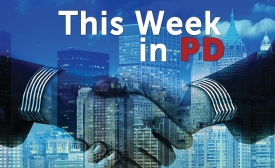soft power
At a time when extremism is increasing, when our citizens are questioning their common EU identity more than ever – now is the time to firmly place culture and cultural policies at the heart of the European political agenda. Making 2018 the year of European Cultural Heritage is a first step in the right direction. But the EU should use the positive dynamics created by this initiative to create a concrete strategy and action plan for international cultural relations, including culture as a tool of soft power and promoting it as a pillar of sustainable development.
Scenic Jeju island is one of South Korea's best places for public diplomacy. It has natural beauty and a story to tell. If President Moon Jae-in has to visit Jeju Island for public diplomacy, the best timing could be one for the annual Jeju Forum and the other for the Jeju 4.3 Uprising memorial service. [...] Holding international conferences is a common way to promote public diplomacy. It's no wonder then that international conferences are often held in scenic places, such as Jeju. Jeju Island is a Korean version of Hawaii or Hainan or Okinawa.
A little bit crab apple, a little bit cherimoya, the ambitious atemoya hopes for soft power prowess and export success. When the atemoya (鳳梨釋迦) was first exported from Taiwan in 2008, its sales quickly surpassed that of other Taiwanese staples, including mangoes and pineapples.

Headlines explore government campaigns to increase their countries' soft power.
With the International Olympic Committee (IOC) set to have chosen Paris over Los Angeles as the site for the 2024 Olympics, it is timely to ask: Is hosting the Olympics good for a nation’s brand, and do they provide a good financial return on investment? [...] He also noted that the concept of nation-branding pervaded China’s handling of the 2008 Beijing games. “In China their goal was broad recognition as a leader on the global stage.” He said that China was largely successful, but that in terms of political reputation, the country was thrown into a negative light.
Agenda and MHP Communications has launched #WeAreNato, the organization's first major communications campaign in nearly a decade.[...] "Helping NATO reach audiences in more than 28 member countries and to explain its mission of guaranteeing peace and security for its citizens in the kind of work we love to do." [...] According to Agenda, the framework contract encompasses a wide variety of communications, public affairs and creative media relations.
Now that Qatar is embroiled in controversy with nearly the entire Sunni Islamic world, led by Saudi Arabia, the 2022 FIFA World Cup is suddenly at risk. The Qatar World Cup has been dogged by controversy since the day it was announced in 2012. But even years of international and humanitarian moral outrage could not do to Qatar what Saudi Arabia proved able to do almost instantly: isolate Qatar’s ruling emir and take away his biggest soft-power achievement.
Recently an interesting debate arose over the fundamental meaning of branding. [...] The project's founder, Simon Anholt, is known for the concept of “nation branding,” also known as “place branding,” which seeks to enhance the images of nations much the way companies try to bolster the reputations of their products. [...] “My belief, backed up by much research (nearly 400 billion data points from 10 years of the Nation Brands Index), has long been that there’s no such thing as place “branding” and that countries are judged by what they do rather than by what they say."







